Best Shots review: Eternals #1 redefines the Jack Kirby/Marvel team with a tinge of tragedy
Kieron Gillen, Esad Ribić, and Matthew Wilson remake the Eternals for the modern age
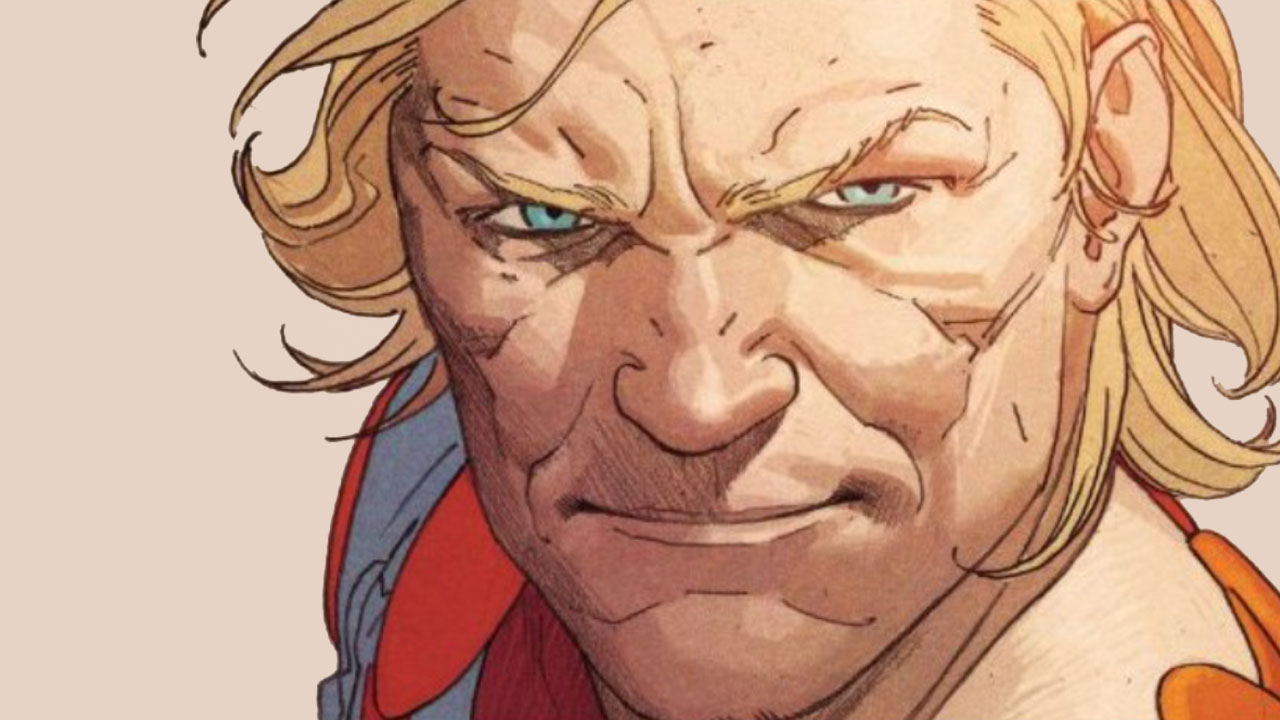
The magic of a great creative team is that they can make you interested in characters that you've never paid attention to before. That's why we're here looking at Eternals #1. The characters were originally created by Jack Kirby in the '70s when he returned to Marvel, though they've never truly caught on like so many of his other creations. Creators such Neil Gaiman and John Romita Jr. attempted to make them a major part of the Marvel Universe previously, though their efforts weren't that successful and the last time they were seen in continuity was in Jason Aaron's Avengers where they were found to have committed suicide en-masse, having learned their believed purpose was a lie.
Written by Kieron Gillen
Art by Esad Ribić and Matthew Wilson
Lettered by Clayton Cowles
Published by Marvel Comics
'Rama Rating: 8 out of 10
Now with a movie on the horizon, the power of synergy has led to Kieron Gillen, Esad Ribić, Matthew Wilson, and Clayton Cowles kicking off this series with the advantage of a blank slate of sorts. Gillen's script does build off of that Avengers appearance and other moments of the Eternals' history, yet knows that most readers will be coming to this without a real idea of what to expect, compared to the first issue of a Captain America or Iron Man book. The basics – like how the Celestials created 100 Eternals and 100 of another group called Deviants – are brought up as and when they are required. He also makes sure things don't get too complicated by sticking to a pared-down cast of just a few characters.
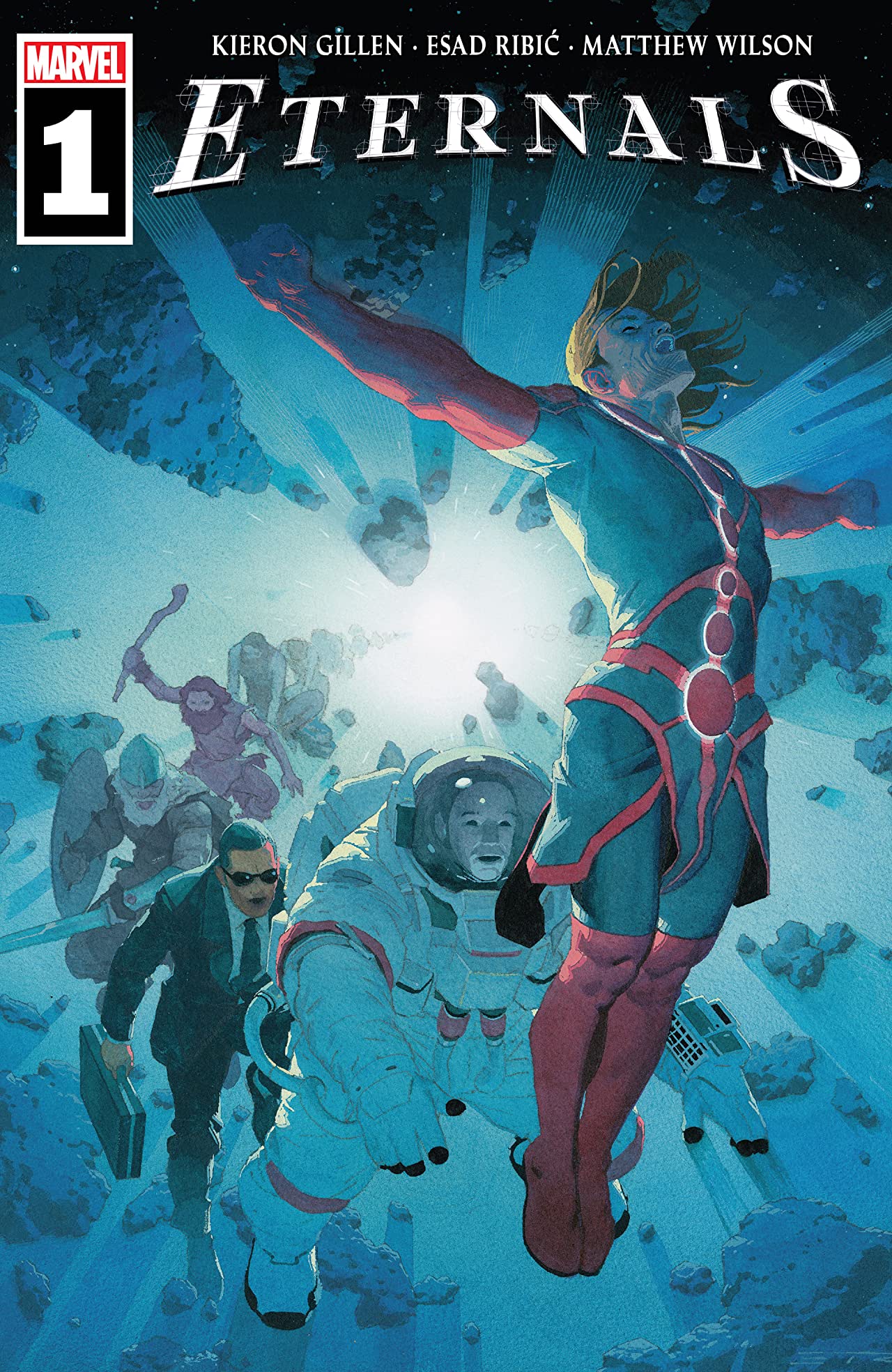
The sentient Machine makes for an omniscient narrator and we join it in the process of waking up Ikaris, describing him as a living arrow. That directness grants the tale some early forward momentum, as just as soon as Ikaris has gotten to his feet, he sets off to free a previously excluded Eternal called Sprite. They then travel to New York and beyond, coming into contact with a few others of their group and finding themselves embroiled in someone's nefarious plot along the way.
The globetrotting experience is well handled by Ribić and Wilson, who capture the streets of New York with the same level of wonder and scale as they do locations like the Exclusion, which exists beneath the South Pole, sealed between six artificial molecules. (A date page helps to place these locations in regard to the wider world).
As Ikaris gets his bearings, Ribić grants the readers a moment to do so as well via a splash page that makes clear how big a place this is. Ikaris might be the focal point of the issue, yet this moment renders them as a small part of what's in view. Wilson gives it a blue hue, which mixed with the mechanical ordinance and long-stretching perspective makes it feel ultimately lonely. If this is where Sprite has spent their recent existence, then it's no surprise that they respond to the brightness of New York's sunny skies, not to mention its hustle and bustle, sense of modernity, and hot dog carts on street corners.
The creative team also does a strong job of situating the book within the wider Marvel Universe. An interaction with Iron Man creates the continuity link to Aaron's Avengers while also contributing to the idea that this world has so much else going on just around the corner. By getting that across, it also works the other way, suggesting that the world of the Eternals is just as promising to find out about.
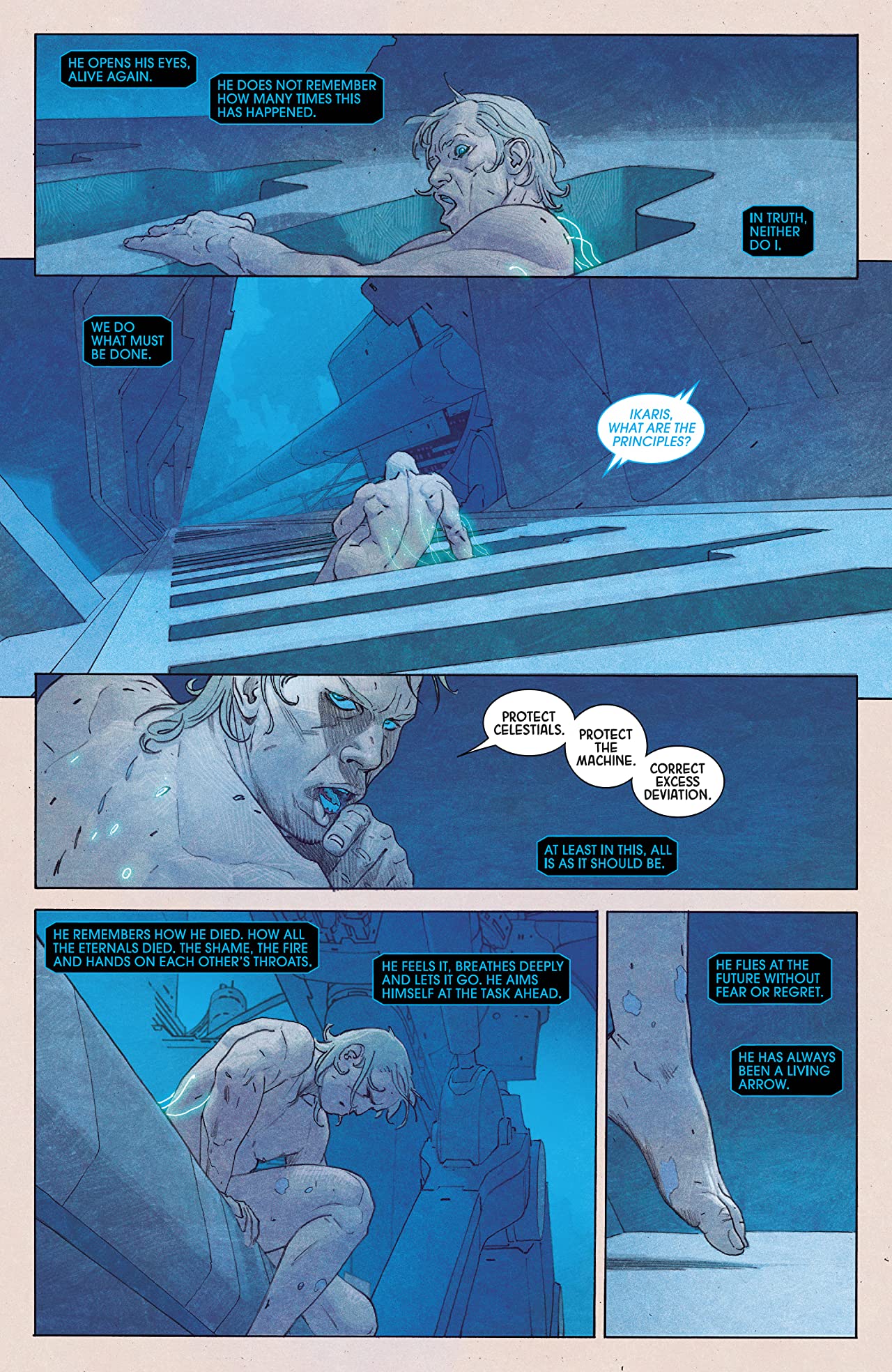
Eternals #1 preview
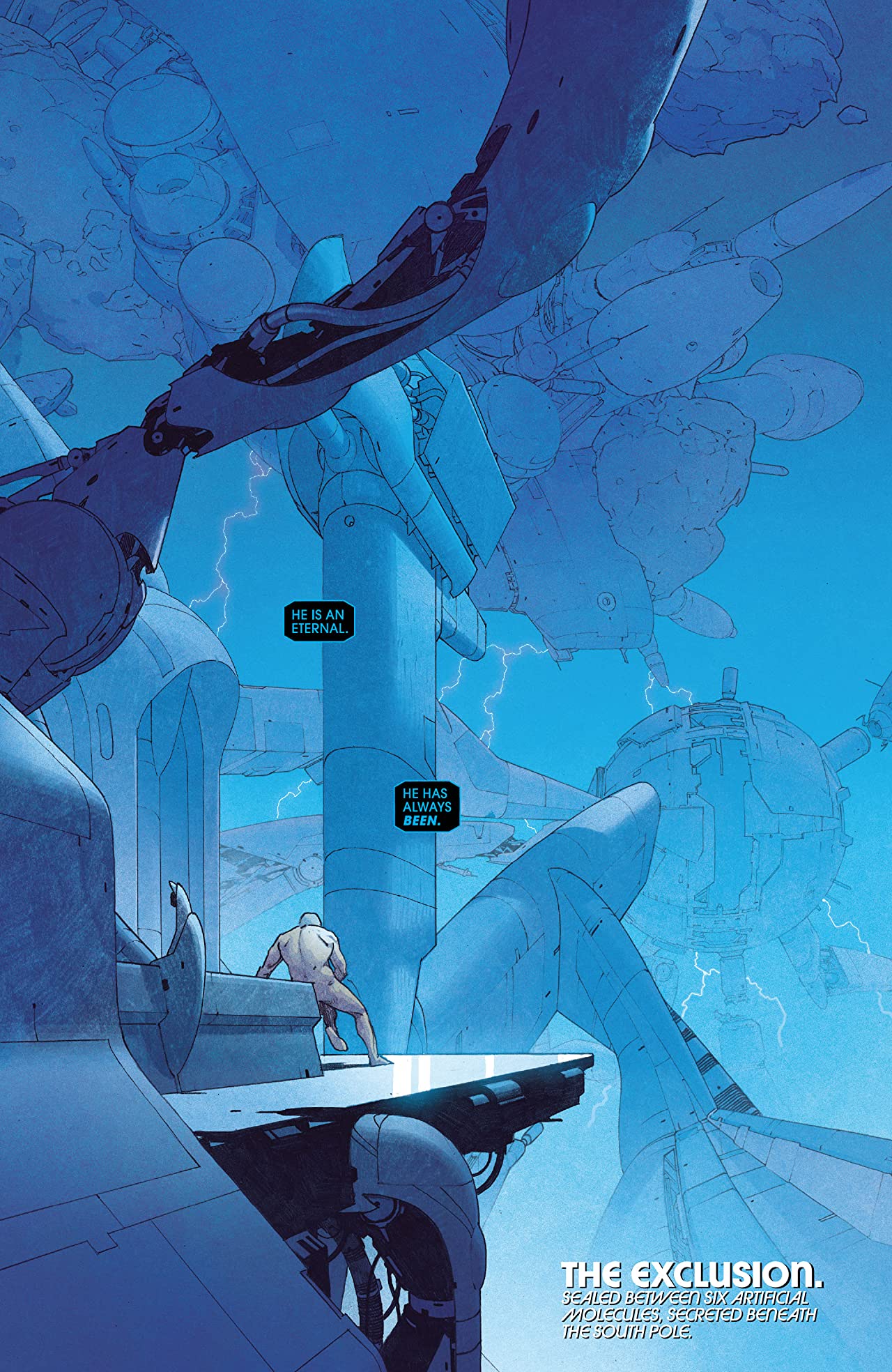
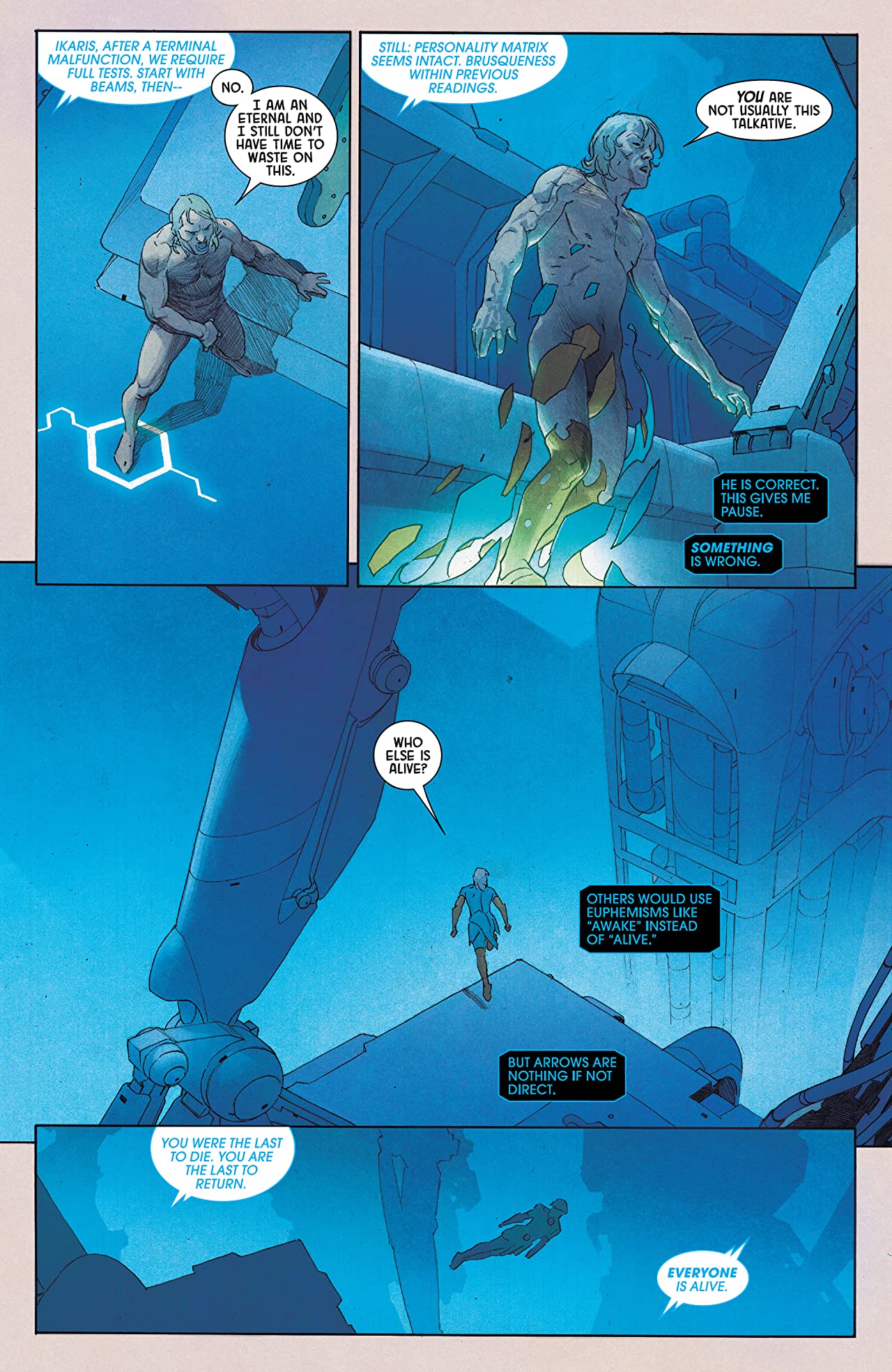
The word 'eternal' might initially suggest a link to immortality, but the presence of death in this story suggests otherwise. What Gillen connects these characters to instead is being unchanging and stagnant. The Eternals had a purpose for so long, but if the Celestials lied about how important it and they really were, what do they do now? And how does that reflect on Sprite's previous attempt to liberate themselves from this purpose? In showing Ikaris and Sprite trying to go on as they are expected to, the story is tinged by tragedy.
Get the best comic news, insights, opinions, analysis and more!
At one point during the journey, Ikaris states "Humans keep mistaking us for gods." which is the point around which the creative team's take is pivoting. The Celestials are the gods in this situation and the Deviants are like demons. Which makes the Eternals angels, and their current predicament reminds me of a line from the Angel episode entitled 'Epiphany' – "If nothing we do matters, then all that matters is what we do." Eternals #1 is not just a fresh start for the creative team and for potential readers, but also for the Eternals themselves to define who they are.
Read Newsarama's interview with Kieron Gillen on his vision for Marvel's Eternals.
Matt Sibley is a comics critic with Best Shots at Newsarama, who has contributed to the site for many years. Since 2016 in fact.


